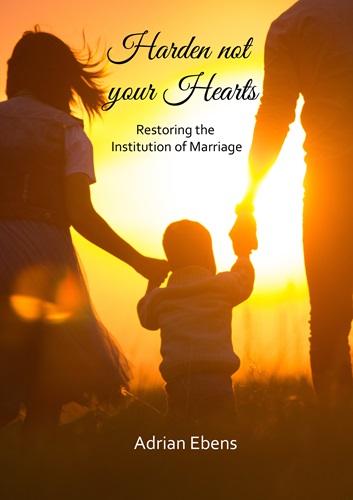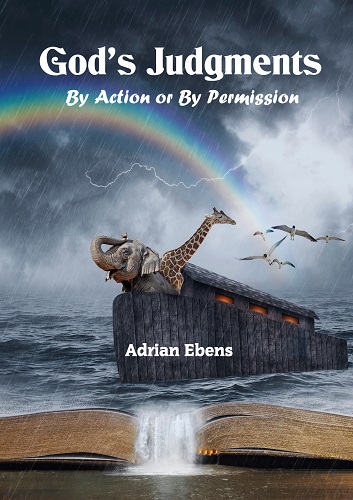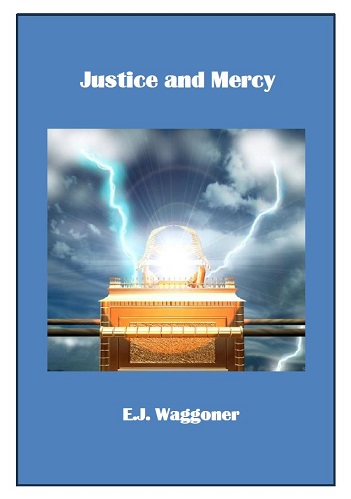Breaking the Cycle: A Reflection on Marriage and Divorce from the Book ‘Harden Not Your Hearts’
Unlike most countries, the Philippines does not allow divorce, making it the only Christian-majority nation without this law. This is because of its deep Christian Catholic influence, which sees marriage as a sacred commitment. However, many Filipinos are trapped in toxic relationships with no easy way out. Annulments are costly and take a long time, forcing some to separate informally. Many believe it is time to legalize divorce to give people a fair chance to leave broken marriages. (Source: House of Representatives, 2023 – congress.gov.ph)
The Philippines does not allow divorce mainly because of its strong Christian Catholic influence, as about 78% of its people are Roman Catholic. The Christian Catholic Church teaches that marriage is a sacred and permanent union, and its influence has shaped the country’s laws. The 1987 Philippine Constitution also protects marriage as an important social institution, making it harder to pass a divorce law. Historically, divorce was allowed during the American and Japanese periods, but it was banned after the country gained independence in 1949. Religious groups, especially the Catholic Bishops' Conference of the Philippines (CBCP), strongly oppose divorce, believing it will weaken families. Because of these reasons, the Philippines remains one of the only countries in the world, along with the Vatican, without a divorce law. (Source: Philippine Statistics Authority, 2020; Catholic Bishops' Conference of the Philippines, cbcpnews.net)
Many Filipinos are stuck in toxic and abusive marriages because there is no divorce law in the country. The only way to legally separate is through annulment, but this process is expensive and takes a long time. In 2023, the Philippine National Police (PNP) reported 8,055 cases of violence against women and children, showing that abuse in marriages is a serious issue. A 2022 survey by the Philippine Statistics Authority (PSA) also found that 1 in 5 women have suffered emotional, physical, or sexual abuse from their partner. These facts show the need for a better legal solution for people in harmful marriages. (Source: Philippine Commission on Women, pcw.gov.ph)
Why do many Filipinos struggle to maintain lasting marriages despite the religious and cultural emphasis on lifelong commitment? If the Christian doctrine teaches that marriage is sacred and permanent, why do many Filipino marriages still end in separation or annulment? Is the problem with the lack of a divorce law, or is there something deeper within Filipino marriages that leads to broken relationships? Should religious doctrines on marriage be re-examined to better address the challenges of today’s Filipino families?
I grew up in a Christian Adventist family where both sides of my grandparents were deeply devoted to religious services, such as morning and evening worship, teaching the family to pray and worship God. As I grew older, I saw how the seeds of faith grew—some continued to flourish, but many did not, leading to broken relationships and marriages. I realized how important it is to truly know the God we worship, understanding that His kingdom is based on relationships rather than mere performance. As a Christian it is easy to follow a set of rules simply because we were brought up that way, but often, this is done out of fear rather than love for God.
I remember a conversation with some of my grandparents' Christian friends, who shared their past experiences with my cousins and me. They said, "Back then, we would often wake up early to pray and worship. If we didn’t wake up on time, we would be shouted at or pinched. After worship, we had to do household chores, and if we didn’t work, we wouldn’t be allowed to eat—no work, no eat." This shows how Filipino culture has passed down beliefs and faith to the next generation. We have been led to believe in a God who punishes us if we do not follow His commands—a tyrant God who punishes those who disobey His rules. These beliefs have been passed down to their grandchildren, shaping how future generations relate to God.
Many of us worship God out of fear rather than truly knowing who He is and understanding His character. But how do we respond to that fear? Do we try to appease Him, thinking we gain worth through our good works and efforts? Do we assume God is pleased with us simply because we followed the rules? It’s like a couple arguing, where one tries to make the other laugh just to earn back their favor. But how does this idea of God align with His unchanging nature—the same yesterday, today, and forever (Hebrews 13:8)? Is this really how we should relate to Him?
My personal and difficult experience with human love has led me on a nearly five-year search to understand why I was in a bad and toxic past relationship. I praise our Father and His precious Son, Jesus, for guiding me to study various books about the Divine Pattern of Relationships within this movement. This journey has been so liberating, as God has taught me many lessons about the most important human relationship—marriage—by comparing His relationship with His Son to marriage and Christ’s relationship with the Church to marriage. I feel truly blessed by the unique message of this movement, which has brought light to my path.
In the past, I was in a four-year relationship during my university days. I became so overwhelmed with my relationship with my ex, as he was my first and only boyfriend. Not knowing my identity and value as a beloved daughter of God, I sought comfort elsewhere—whether through achievements or love from a partner. Coming from a broken family, my love for my boyfriend became unstable. Yet, nothing truly satisfied my deep longing for love and worth. I remained unhappy and depressed, believing that something was missing. The missing piece I once thought I could find in worldly things has now been filled by Christ, and I no longer need to seek my identity and comfort elsewhere.
One reason this peace was hard to come by was because of the Trinity doctrine, which impacts our understanding of the difference between Agape and Eros, making it harder for marriage to be built on Agape love. This will help us see why marriage has been unable to reach its true purpose.
…yet to us there is one God, the Father, out from whom as a source are all things and we for Him, and one Lord Jesus Christ, through whose intermediate agency all things exist and we through Him. 1 Corinthians 8:6, Wuest Expanded Translation
The main relationship in the universe between the Father and the Son is like a source and a channel. The Son receives everything from His Father, including life, because everything comes from the Father. The Son of God receives His inheritance from the Father, which shows the Father’s Agape love. Agape love gives freely without being influenced or motivated by the one receiving it. Now, let’s compare Agape with Eros:
Agape is often contrasted with eros, which is not found in the New Testament though it is prominent in Greek philosophy. Eros can refer to a vulgar, carnal love, but in the context of Hellenic thought it takes the form of spiritual love that aspires to procure the highest good. Eros is the desire to possess and enjoy [the need or desire for another]; agape is the willingness to serve without reservations.... Eros is attracted to that which has the greatest value [need for equal status or co-equality]; agape goes out to the least worthy. Eros discovers value [seeks equal] whereas agape creates value [makes equal]. Agape is a gift love whereas eros is a need love. Eros springs from a deficiency that must be satisfied. Agape is the overflowing abundance of divine grace.—‘God the Almighty: Power, Wisdom, Holiness and Love’, D. Bloesch, 2006, p. 147
Believing that Jesus is the begotten Son means believing that God has given Him everything. Because of this, we see that the Son of God is full of gratitude, joy, and love for His Father. This is why He is an agape son.
Accepting the begotten Son and receiving His Spirit in your heart means receiving life. His Spirit will remove the harmful relationship patterns that have affected humanity for thousands of years. It will also put an end to Satan’s oppositional way of thinking, as seen in Neoplatonism. True Christianity allows us to be made new through a source channel relationship between spirit and body, redeeming our bodies and making them holy. But Neoplatonism made body and spirit at war with each other, discarding source-channel redemption for a works-based oppositional system. (See further explanation of this in Chapter 14 of Harden Not Your Heart – ‘Divine Pattern Versus Neoplatonism’)
The doctrine of the Trinity teaches that the Father, Son, and Spirit are equal because of their own power. Because of this, the love between them is not Agape but Eros. They are drawn to each other because of their power. The Son didn’t receive anything from the Father because He already had it in Himself, so He feels no gratitude to the Father. The foundation of Their relationship is mutual respect, not agape. Pope Benedict explains it this way:
God is the absolute and ultimate source of all being; but this universal principle of creation—the Logos, primordial reason—is at the same time a lover with all the passion of a true love. Eros is thus supremely ennobled, yet at the same time it is so purified as to become one with agape.—Pope Benedict IX Encyclical Letter, 2005, Deus Caritas Est “God is Love.”
The Papacy says that God is Eros, but made better and purified by Agape. However, He is Eros first. As Augustine says:
Love is of some one that loves, and with love something is loved. —Augustine. De Trinitite “On the Trinity” Book VIII
Augustine says that love means something is being loved. Love cannot exist unless there is someone or something to love. Adventist theologians Whidden, Moon, and Reeve explain it this way:
If God is truly—in His very essence—the God of “love” (John 3:16 and 1 John 4:8), then we need to consider the following implications. Could one who has existed from all eternity past and who made us in His loving image—could this God truly be called love if He existed only as a solitary being? Is not love especially divine love, possible only if the one who made our universe was a plural being who was exercising “love” within His divine plurality from all eternity past?...[now quotes from Bruce Metzger] “The Unitarian professes to agree with the statement that ‘God is love.’ But these words ‘God is love,’ have no real meaning unless God is at least two Persons. Love is something that one person has for another person. If God were a single person, then before the universe was made, he was not love. For, if love be of the essence of God, he must have possessed an eternal object of love. Furthermore, perfect love is possible only between equals. Just as a man cannot satisfy or realize his powers of love by loving the lower animals, so God cannot satisfy or realize his love by loving man or any creature. Being infinite, he must have eternally possessed an infinite object of his love, some alter ego, or, to use the language of traditional Christian theology, a consubstantial, co-eternal, and co-equal Son.—The Trinity, Whidden, Moon and Reeve, 115-116
The love that is being described is Eros, not Agape. Agape is set aside as somehow being less pure, as not truly being love. It is Eros that cannot love someone lower than itself, while Agape can. Eros only appreciates what is equal or greater. This causes a relationship of equals in the Trinity, instead of the source-and-channel relationship described in 1 Corinthians 8:6.
Since male and female are made in the image of God, believing that God and His Son are co-equal and both sources will make the husband and wife see themselves the same way. This creates tension or opposition in the leadership of the home. Their roles in the relationship become unclear. If they are seen as co-equals, they can be anything in this model – they can be interchangeable – but this doesn’t match reality. For example, the man cannot give birth.
In the true view of God, the Father’s clear leadership over His Son is reflected in the relationship between the man and his wife.
But I want you to know that the head of every man is Christ, the head of woman is man, and the head of Christ is God. 1 Corinthians 11:3, NKJV
- Just as Christ received everything from God and the woman receives everything through her husband, the gratitude, joy, and honor towards the giver create a natural headship without tension.
- In the Trinity, the Son doesn't receive anything from the Father because He is part of the One and is Himself the giver of all things. Therefore, the headship must be forced or imposed, not natural.
- Therefore, the worship of the Trinity disrupts the true relationship that should exist between husband and wife, preventing marriage from fulfilling God’s intended design.
- Satan wanted to be co-equal with God, desiring the same position and power. By worshipping the Trinity, we unknowingly worship the system that Satan imagined and wanted.
Now, I have come to deeply understand and widen my knowledge that the Agape love of God is stable and unchanging. It does not depend on the worthiness of the one being loved; instead, Agape love bestows value upon its object. This divine love is not based on the qualities or achievements of the loved one, but originates from God’s heart and transforms those who receive it. This is the love God has for us, and it is the love He desires to see reflected in us toward others.
If we could only reflect on this and repent early in our relationships, many marriages could have been saved. Instead, hardened hearts often lead to divorce, leaving many children to suffer, the trauma of which they often pass on to the next generation. Divorce does not solve the problem; it only gives people a way out of broken marriages without true healing. We feel guilty before God for not being able to live up to our vow to cherish our partner forever. Instead of bringing freedom, it can harden hearts and lead to more pain unless there is true repentance.
How can we break this cycle of broken relationships and marriages? It's never too late! Light has been shining so brightly, and we don't have to keep repeating the cycle over and over again. "Ask, and it shall be given; seek, and ye shall find; knock, and it shall be opened unto you." (Matthew 7:7) The unique message in this movement has freed me and led me to reflect on marriage as the core of many human relationships—family, friends, and even my future marriage if I were to marry. Studying the relationship between the Father and His Son will guide us toward sanctification in our own relationships.
What a Blessing indeed!





